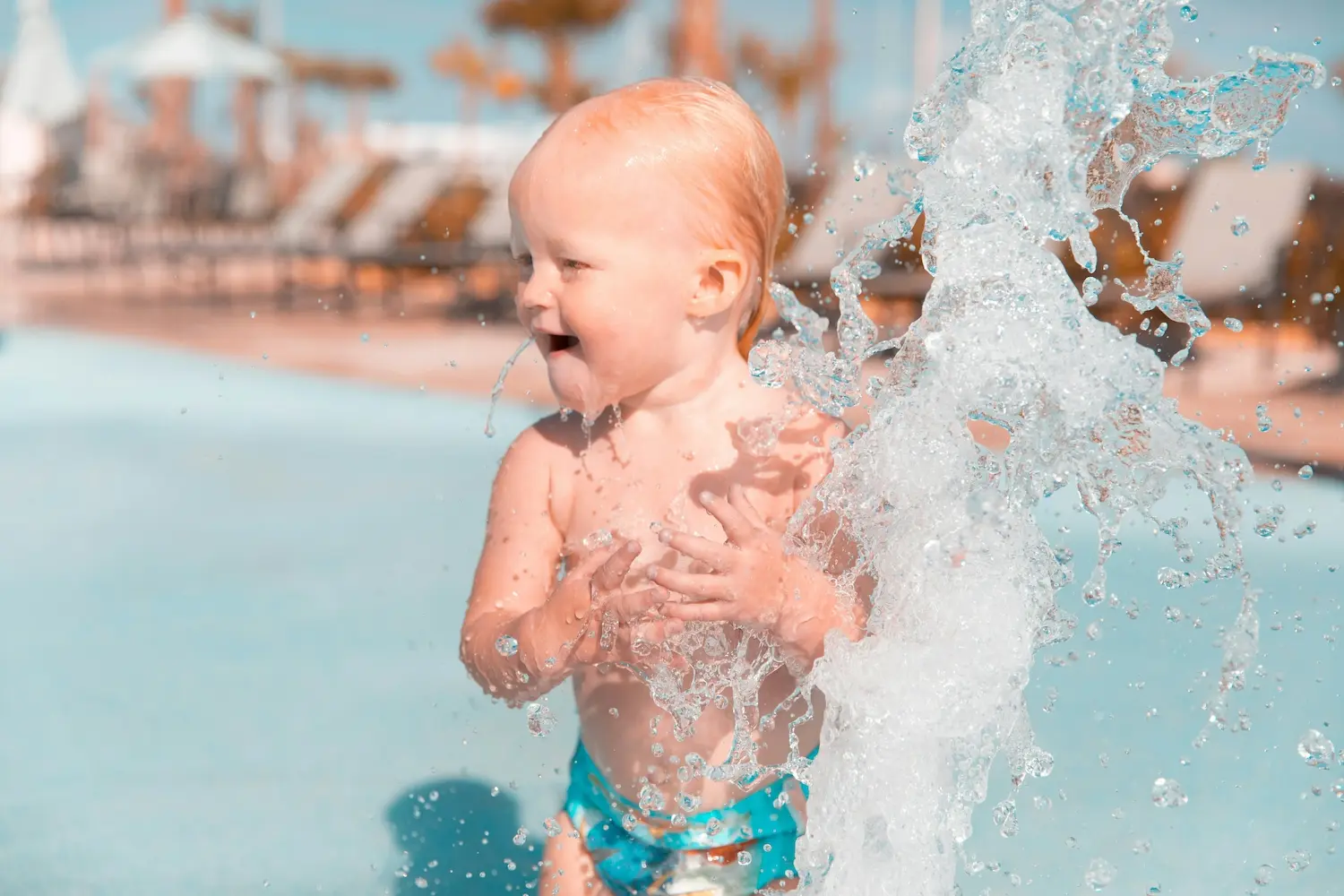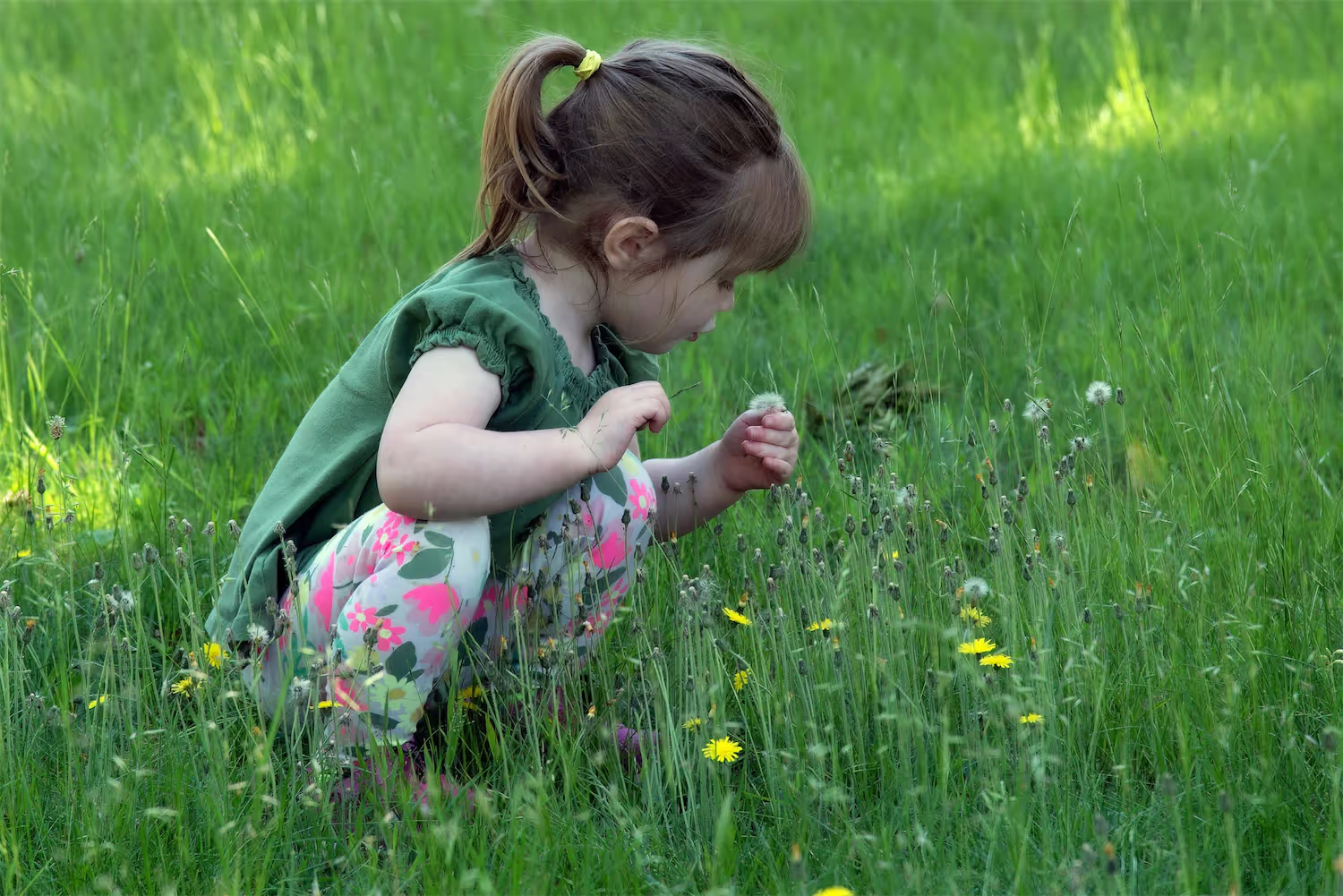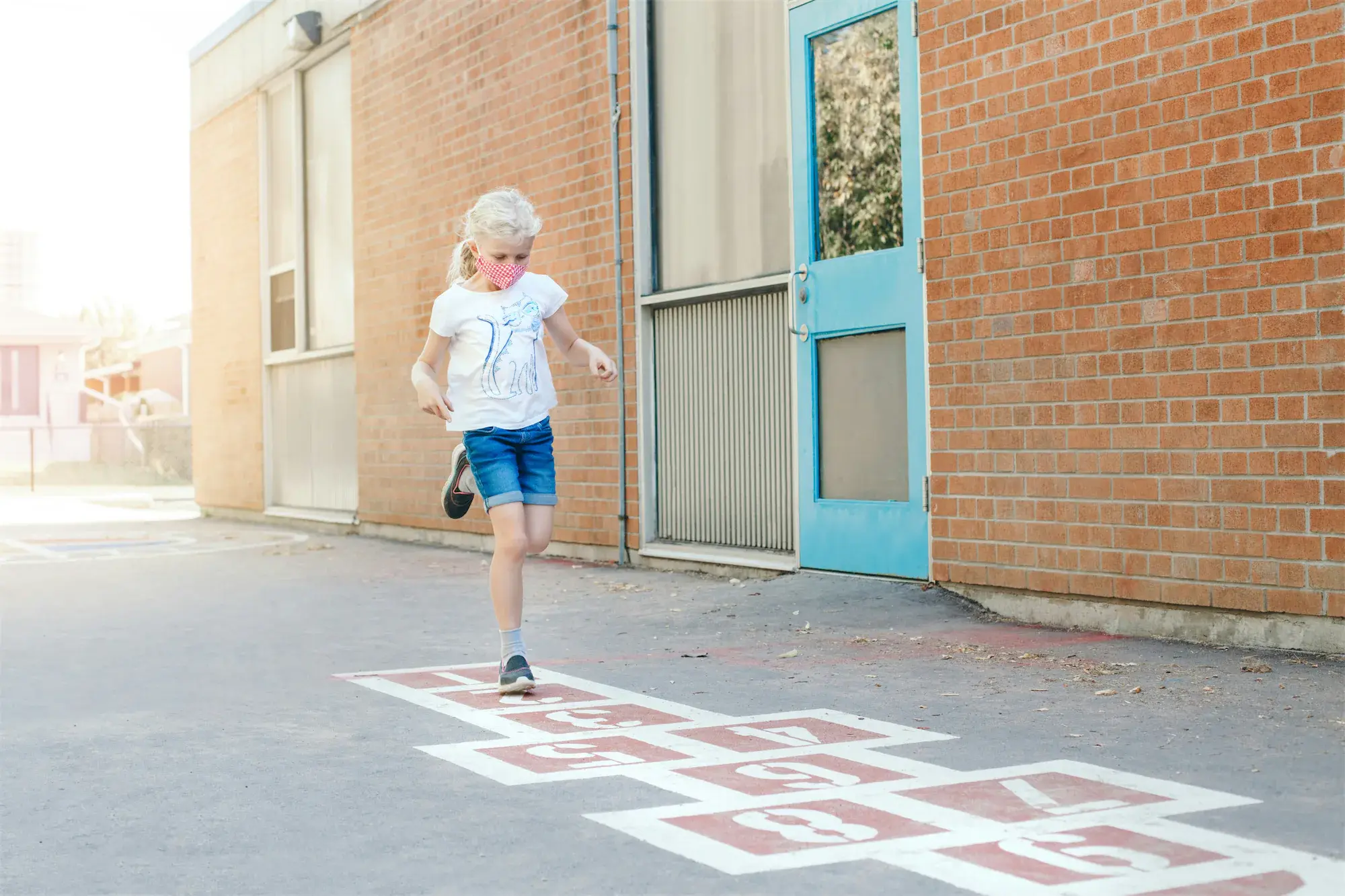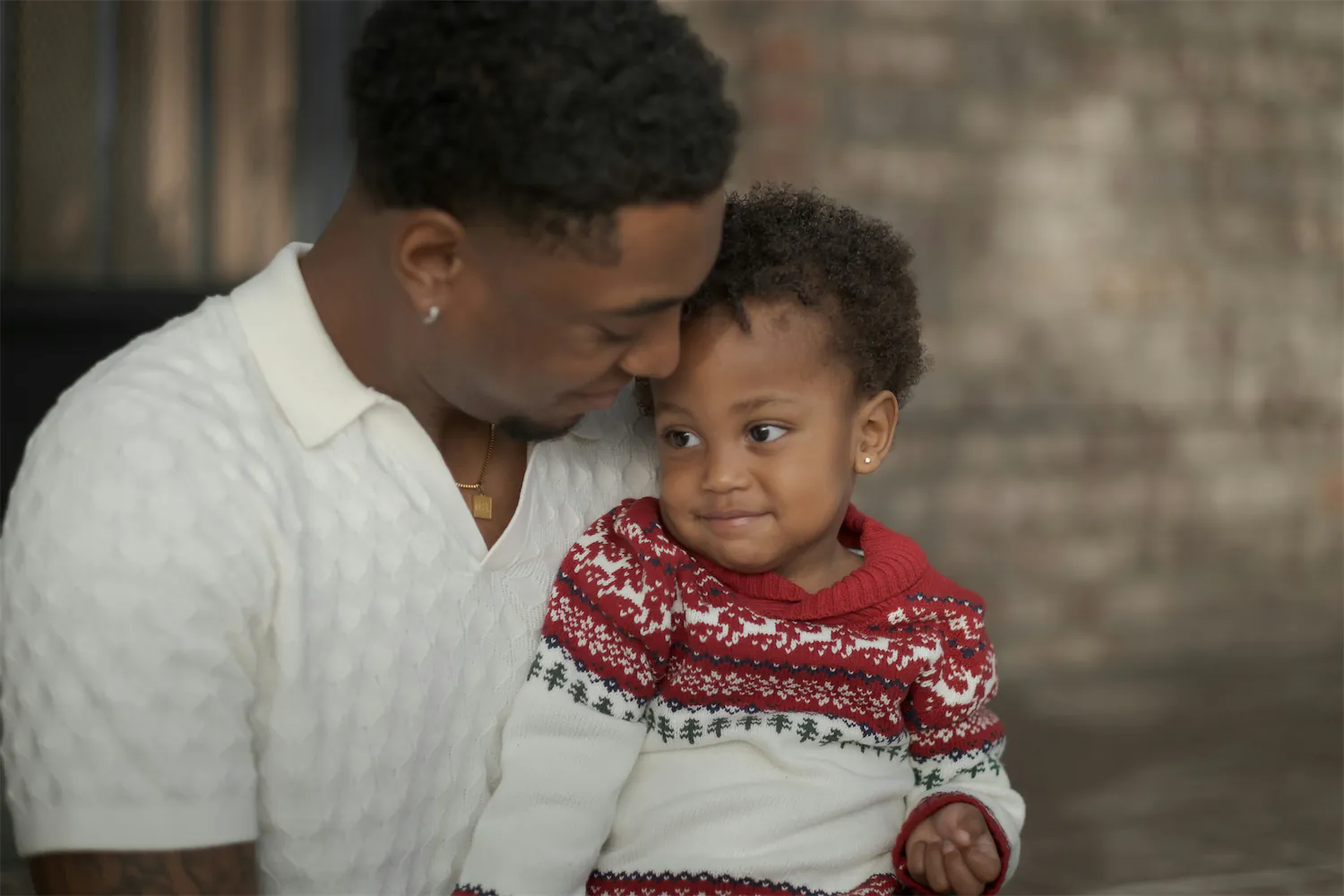When can babies start to swim
When can babies start to swim
Is there anything cuter than a little tot smiling as they splash away in the water on a sunny day? One of your priorities as a parent might be keeping that smile on your little one’s face, but your top priority is probably keeping them safe in the water. Consider this deep-dive into introducing swimming to newborns and infants a helpful start to a lifelong love of and respect for water.
Is there anything cuter than a little tot smiling as they splash away in the water on a sunny day? One of your priorities as a parent might be keeping that smile on your little one’s face, but your top priority is probably keeping them safe in the water. Consider this deep-dive into introducing swimming to newborns and infants a helpful start to a lifelong love of and respect for water.

Megan N. Freeland, PharmD
Content Writer

Dr. Ali Alhassani
Pediatrics and Sleep Training Expert



Can a newborn baby float on water?
You may have heard the myth that a newborn baby can float on water. While this isn't 100% true, babies can learn to float, just like they can learn to swim. And once they learn how, they're pretty good at floating, considering their size and shape.
Even though babies aren't born knowing how to float or swim, babies are born with two reflexes related to water:
The diving reflex: Babies under 1 — especially those between 2 and 6 months old — automatically hold their breath and open their eyes when their faces meet a flow of air or water.
The swimming reflex: During the first 6 months of life, if you place a baby tummy-down in the water, they will move their arms and legs in a swimming motion.
But these reflexes don’t mean they’re necessarily ready to hit the pool as soon as they’re born.
When can my newborn go in a pool?
Young children of any age must always be under an adult’s direct supervision while in a pool. With that said, most pediatricians recommend keeping newborns and babies younger than 6 months old out of public pools for a few reasons:
Public pools may be too cold. They should be warmer than 89 degrees F, but not warmer than 94 degrees F. (That means hot tubs and spas are out.)
Pools contain harsh chemicals. Many of the chemicals that help keep public pools clean are too harsh for young babies’ skin and may even cause respiratory infections. Plus, since we’re talking about young babies, the risk of swallowing too much water from a public pool can also pose risks.
Poop-splosions are real. Diarrhea ruins the fun for everyone when it happens in a pool. If your child has a blowout in water, even a swim diaper likely won’t contain all the fecal matter, and the entire pool will be contaminated.
Are Swimming Lessons for Newborns Recommended?
When it comes to formal swimming lessons for newborns and young infants, there’s a bit of controversy. The American Academy of Pediatrics (AAP) recommends that all children (and adults) learn to swim and considers swimming lessons as early as age 1 to be one of the most effective ways to prevent drowning in babies and children.
In addition to lowering the risk of drowning, there are plenty of other benefits of swimming for children:
Improved motor skills like reflexes and grasping
More bonding time with parents and trusted adults
An appetite boost
The AAP’s recommendations are based on research that shows swimming lessons can be effective for children 1 year or older, but what does that mean for younger infants? Well, since research doesn’t show a clear benefit to formal swimming lessons before age 1, AAP doesn’t include younger babies in their recommendation.
But you’ll find that many swim schools and programs offer lessons for babies at 6 months old, or even younger. And as a parent, you may want to help your child get comfortable in water before their first birthday.
Types of Swimming Lessons for Newborns, Infants, and Older Children
It’s never too late to start swimming lessons. Whether your child starts swimming lessons at 6 months old, 1 year old, or 3 years old, it’s always a great time to teach water safety and build essential skills.
When you’re ready to enroll your child in a swim school or program, you might be overwhelmed by all the options, so here’s a simple overview of the most common types of swimming lessons for kids that are available.
Swimming Lessons for Newborns and What Happens at Baby Swimming Classes
Many places that offer swim lessons for babies start with a level that includes a parent or caregiver in the water too. You might hear these types of lessons called Mommy and Me, Parent and Me, or Parent-Tot classes.
In these types of swimming lessons, you and your baby participate in fun activities that help them get used to being in water, develop a positive relationship with the water, and learn basic water safety skills for kids, like how to hold onto the pool wall and climb into and out of the pool. Not to mention, they’re also a great bonding opportunity!
By the way, while you might be itching to get your newborn into the pool, if you’ve recently given birth, be sure to get cleared by your doctor before going swimming. Your doctor may recommend waiting until at least 6 weeks postpartum to go swimming, but your specific recommendations will depend on your individual health and birth experience.
Children’s Swimming Lessons Infants, Toddlers, Preschoolers
Usually the next level of swim lessons is for infants and toddlers who are ready to learn water skills more independently. Some places, like American Red Cross Learn to Swim, may require parents to be in the water with their children even as preschoolers.
At other locations, toddlers and preschoolers may be in the water without parents. As little ones progress in their skills, they will be able to move on to more advanced swim lessons for kids.
Infant Survival Swim Lessons
Infant Swimming Resource (ISR) self-rescue classes are also available. Whereas most swimming programs are centered on basic safety, fun, and developing a broad range of water skills, ISR classes are more narrowly focused on teaching survival and self-rescue skills. They are designed to help infants learn how to rescue themselves if they find themselves in water without help.
The classes are very short — around 10 minutes — but usually happen more frequently than other swimming classes. According to ISR instructors, lessons are quick in order to help children better learn and retain skills, more frequent because of the short duration, and one-on-one to provide direct attention to each child.
How Many Lessons before a Baby Can Swim?
Every child learns and masters swimming skills at a different pace. So some children may pick up on basics more quickly, whereas others may need more time.
Your best bet is to take note of how your child learns best and, when possible, reinforce the skills they pick up in swimming lessons at home. For many babies, the bathtub is a great place to practice and get more comfortable in the water. In fact, many parents will use the bathtub to introduce their infants or toddlers to swimming.
Remember: even at home and near shallow sources of water (like toilets or tubs), young children must always be supervised by an adult near water.
Do Babies Cry during ISR or Other Swimming Lessons?
Tears are a normal part of life for newborns, and that’s no different for newborns in the water. For many parents, even bath time can be a struggle.
Babies might cry in any type of swimming lessons. Just because your baby cries while in the water doesn’t mean they don’t like it, or that they never will. It also doesn’t mean you should avoid teaching them essential water safety skills.
Oftentimes, as babies and children spend more time in the water, they become more comfortable and there are fewer tears involved for all.
What to Look for In Baby Swimming Classes?
There are several factors to consider when looking for nearby infant swimming classes:
Instructor experience, qualifications, and certifications: You want to know your child’s swim instructor is well-qualified to teach the swim curriculum. Swim instructors should have completed a training program or certification in order to teach swimming lessons.
Adults within arms’ reach at all times: Also known as touch supervision, look for swim facilities that are serious about ensuring children can always reach an adult while in the water.
Pool hygiene: Maintaining the cleanliness of the pool is important, especially for little people who may be sensitive to chemicals and more likely to swallow pool water. Maintaining a warm pool temperature is also key.
Lesson availability and flexibility: Depending on your schedule and lifestyle, you may need swimming lessons for your child on specific days or at specific times. Look for a swim location that can fit your scheduling needs.
Cost: Similarly, you may have a certain budget in mind when it comes to swimming lessons. Organizations like the YMCA and American Red Cross, as well as your local county parks, may offer affordable swimming lessons and even scholarships.
Following these tips should help you find and choose the best local swim class for your baby.
Can a newborn baby float on water?
You may have heard the myth that a newborn baby can float on water. While this isn't 100% true, babies can learn to float, just like they can learn to swim. And once they learn how, they're pretty good at floating, considering their size and shape.
Even though babies aren't born knowing how to float or swim, babies are born with two reflexes related to water:
The diving reflex: Babies under 1 — especially those between 2 and 6 months old — automatically hold their breath and open their eyes when their faces meet a flow of air or water.
The swimming reflex: During the first 6 months of life, if you place a baby tummy-down in the water, they will move their arms and legs in a swimming motion.
But these reflexes don’t mean they’re necessarily ready to hit the pool as soon as they’re born.
When can my newborn go in a pool?
Young children of any age must always be under an adult’s direct supervision while in a pool. With that said, most pediatricians recommend keeping newborns and babies younger than 6 months old out of public pools for a few reasons:
Public pools may be too cold. They should be warmer than 89 degrees F, but not warmer than 94 degrees F. (That means hot tubs and spas are out.)
Pools contain harsh chemicals. Many of the chemicals that help keep public pools clean are too harsh for young babies’ skin and may even cause respiratory infections. Plus, since we’re talking about young babies, the risk of swallowing too much water from a public pool can also pose risks.
Poop-splosions are real. Diarrhea ruins the fun for everyone when it happens in a pool. If your child has a blowout in water, even a swim diaper likely won’t contain all the fecal matter, and the entire pool will be contaminated.
Are Swimming Lessons for Newborns Recommended?
When it comes to formal swimming lessons for newborns and young infants, there’s a bit of controversy. The American Academy of Pediatrics (AAP) recommends that all children (and adults) learn to swim and considers swimming lessons as early as age 1 to be one of the most effective ways to prevent drowning in babies and children.
In addition to lowering the risk of drowning, there are plenty of other benefits of swimming for children:
Improved motor skills like reflexes and grasping
More bonding time with parents and trusted adults
An appetite boost
The AAP’s recommendations are based on research that shows swimming lessons can be effective for children 1 year or older, but what does that mean for younger infants? Well, since research doesn’t show a clear benefit to formal swimming lessons before age 1, AAP doesn’t include younger babies in their recommendation.
But you’ll find that many swim schools and programs offer lessons for babies at 6 months old, or even younger. And as a parent, you may want to help your child get comfortable in water before their first birthday.
Types of Swimming Lessons for Newborns, Infants, and Older Children
It’s never too late to start swimming lessons. Whether your child starts swimming lessons at 6 months old, 1 year old, or 3 years old, it’s always a great time to teach water safety and build essential skills.
When you’re ready to enroll your child in a swim school or program, you might be overwhelmed by all the options, so here’s a simple overview of the most common types of swimming lessons for kids that are available.
Swimming Lessons for Newborns and What Happens at Baby Swimming Classes
Many places that offer swim lessons for babies start with a level that includes a parent or caregiver in the water too. You might hear these types of lessons called Mommy and Me, Parent and Me, or Parent-Tot classes.
In these types of swimming lessons, you and your baby participate in fun activities that help them get used to being in water, develop a positive relationship with the water, and learn basic water safety skills for kids, like how to hold onto the pool wall and climb into and out of the pool. Not to mention, they’re also a great bonding opportunity!
By the way, while you might be itching to get your newborn into the pool, if you’ve recently given birth, be sure to get cleared by your doctor before going swimming. Your doctor may recommend waiting until at least 6 weeks postpartum to go swimming, but your specific recommendations will depend on your individual health and birth experience.
Children’s Swimming Lessons Infants, Toddlers, Preschoolers
Usually the next level of swim lessons is for infants and toddlers who are ready to learn water skills more independently. Some places, like American Red Cross Learn to Swim, may require parents to be in the water with their children even as preschoolers.
At other locations, toddlers and preschoolers may be in the water without parents. As little ones progress in their skills, they will be able to move on to more advanced swim lessons for kids.
Infant Survival Swim Lessons
Infant Swimming Resource (ISR) self-rescue classes are also available. Whereas most swimming programs are centered on basic safety, fun, and developing a broad range of water skills, ISR classes are more narrowly focused on teaching survival and self-rescue skills. They are designed to help infants learn how to rescue themselves if they find themselves in water without help.
The classes are very short — around 10 minutes — but usually happen more frequently than other swimming classes. According to ISR instructors, lessons are quick in order to help children better learn and retain skills, more frequent because of the short duration, and one-on-one to provide direct attention to each child.
How Many Lessons before a Baby Can Swim?
Every child learns and masters swimming skills at a different pace. So some children may pick up on basics more quickly, whereas others may need more time.
Your best bet is to take note of how your child learns best and, when possible, reinforce the skills they pick up in swimming lessons at home. For many babies, the bathtub is a great place to practice and get more comfortable in the water. In fact, many parents will use the bathtub to introduce their infants or toddlers to swimming.
Remember: even at home and near shallow sources of water (like toilets or tubs), young children must always be supervised by an adult near water.
Do Babies Cry during ISR or Other Swimming Lessons?
Tears are a normal part of life for newborns, and that’s no different for newborns in the water. For many parents, even bath time can be a struggle.
Babies might cry in any type of swimming lessons. Just because your baby cries while in the water doesn’t mean they don’t like it, or that they never will. It also doesn’t mean you should avoid teaching them essential water safety skills.
Oftentimes, as babies and children spend more time in the water, they become more comfortable and there are fewer tears involved for all.
What to Look for In Baby Swimming Classes?
There are several factors to consider when looking for nearby infant swimming classes:
Instructor experience, qualifications, and certifications: You want to know your child’s swim instructor is well-qualified to teach the swim curriculum. Swim instructors should have completed a training program or certification in order to teach swimming lessons.
Adults within arms’ reach at all times: Also known as touch supervision, look for swim facilities that are serious about ensuring children can always reach an adult while in the water.
Pool hygiene: Maintaining the cleanliness of the pool is important, especially for little people who may be sensitive to chemicals and more likely to swallow pool water. Maintaining a warm pool temperature is also key.
Lesson availability and flexibility: Depending on your schedule and lifestyle, you may need swimming lessons for your child on specific days or at specific times. Look for a swim location that can fit your scheduling needs.
Cost: Similarly, you may have a certain budget in mind when it comes to swimming lessons. Organizations like the YMCA and American Red Cross, as well as your local county parks, may offer affordable swimming lessons and even scholarships.
Following these tips should help you find and choose the best local swim class for your baby.
Summer Health offers fast and reliable pediatric urgent care through online doctors, all via text. Whether you’re worried about your baby's fever, rashes, or other children's health concerns, we provide expert advice and support anytime, right from your phone.

Explore Summer Health
Our team of pediatricians are ready to answer the everyday questions you have about your child’s health.
*Requires Summer Health account, starting at $20/mo

















